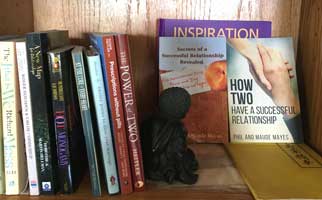Successful Relationship Reading Corner
 This week, we wrote about what the difference is between disagreement and conflict. In researching the subject, we've found that different writers assign different meanings to the terms disagreement, conflict, argument and fighting. Nevertheless, they are making very similar points. This week, we wrote about what the difference is between disagreement and conflict. In researching the subject, we've found that different writers assign different meanings to the terms disagreement, conflict, argument and fighting. Nevertheless, they are making very similar points.
Disagreements Are Not Conflicts "While lots of couples, and the people who advise them, use disagreement and conflict interchangeably; I believe doing so ignores important differences between these two types of interactions. The defining thing about a disagreement is that you and your partner are talking to each other. ... In a conflict, you are not talking; rather, you are yelling, avoiding, accusing, talking over each other, etc."
7 Ways Happy Couples Deal with Disagreements Differently "Every couple disagrees from time to time. Perfect compatibility is not possible, but sensibly working though incompatibility is. The difference between a happy couple and an unhappy couple is the way in which they handle their disagreements. Thus, in order to grow and be successful in our intimate relationships, we must adopt healthy coping strategies for dealing with our differences."
The Very Important Difference Between Conflict and Fighting "I’ve shared with you in past blog posts that my husband, Mike, and I are very, very different. Early in our marriage, these differences created a lot of tensions. There were days when I wondered if we could make it with such divergent views on everything from money to movies. Mike and I are still very different. While that continues to create disagreement, we rarely fight anymore. We discovered a secret that has made our marriage immeasurably more enjoyable. Are you ready?"
|
|